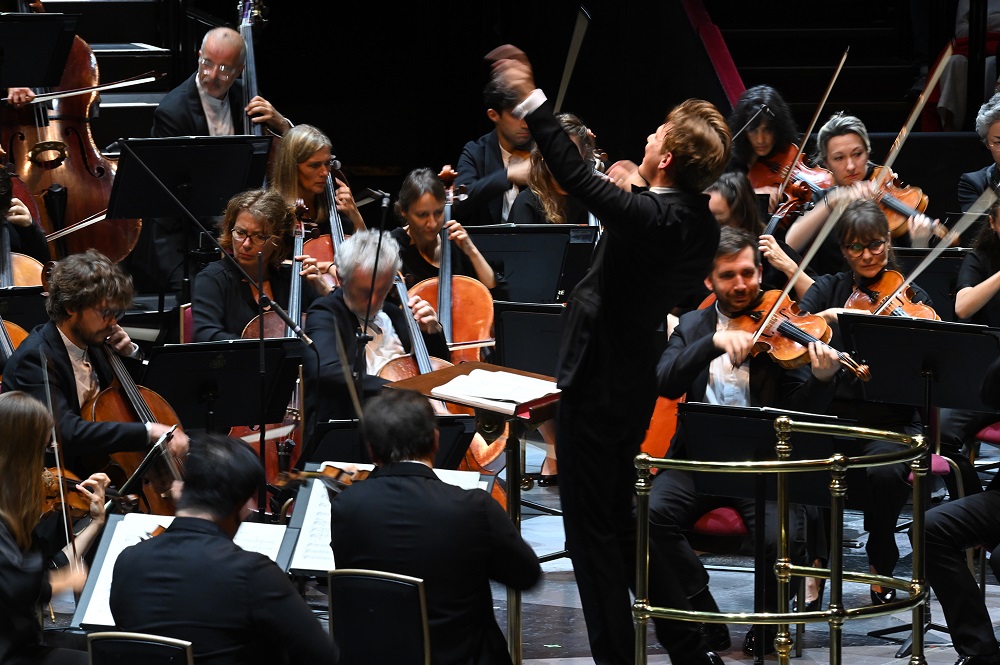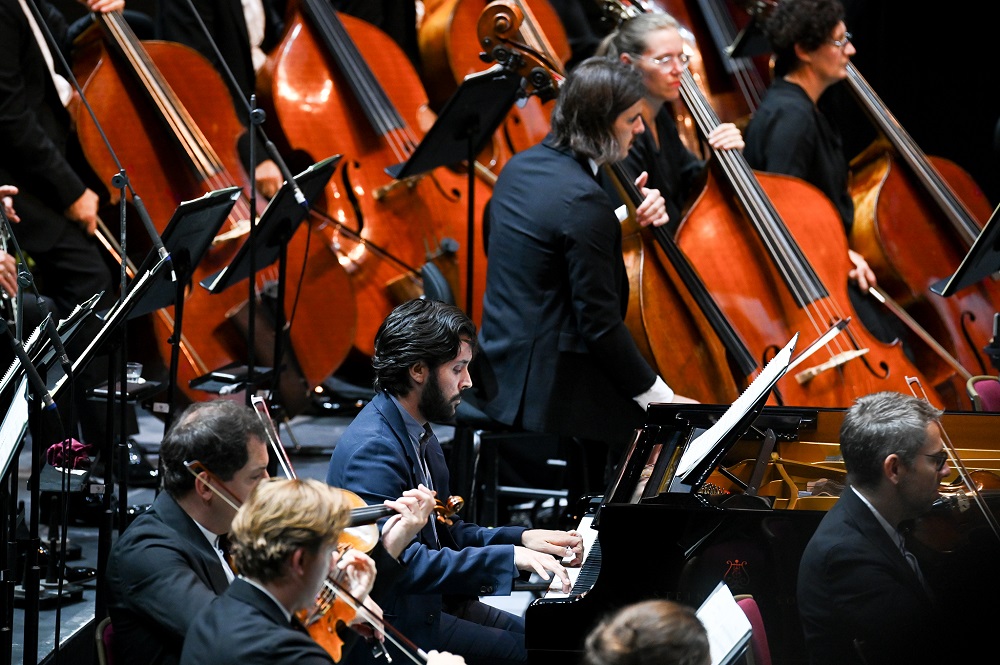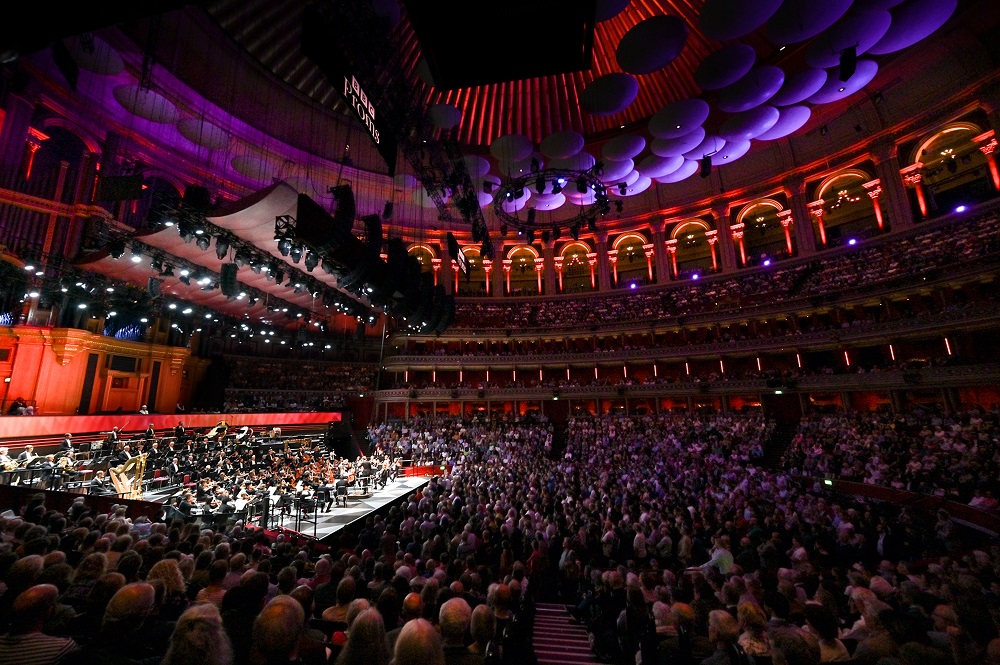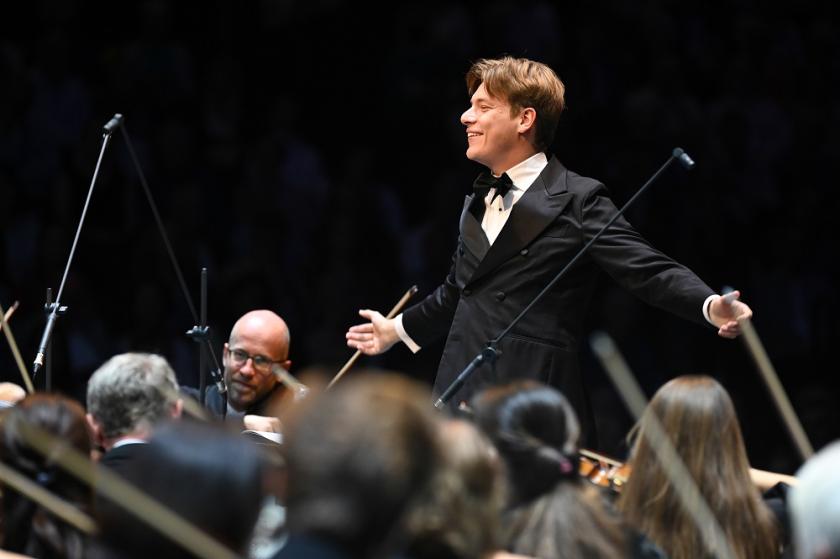Never mind the Last Night, it’s always the preceding Proms weeks which lead us through different rooms of a dream palace as visiting orchestras succeed one another. This year has taken on an almost hallucinatory quality as three great conductors – Jakub Hrůša, Kirill Petrenko and Klaus Mäkelä – appeared in close succession. If the Orchestre de Paris isn’t quite on the level with the Czech or Berlin Philharmonics, its love-in with its chief conductor was still electrfying at times.
Once again the ludicrous line fired at Mäkelä of "over-hyped Wunderkind" being touted by many who should know better was vividly rebuked. It doesn't mean that everything he does is wholly successful - at 27, you can be permitted to find your feet - but when the risks are so daring, the sound modelling so radical, the intelligence so beyond his years, this alchemist stll deserved awed respect. Yes, like a kid in a sweetshop, he's jumped at the chance to helm orchestras in Paris, Oslo, Chicago and - in prospect - Amsterdam. But he can't be blamed if they all want him; I have yet to meet an orchestral musician who doesn't respond to the magic.  The trance state into which Mäkelä sometimes seems to fall - it may be an illuson, of course - is partly guaranteed by Debussy's Prélude à l'après-midi d'un faune.. The usual packed hall of c. 5,500 held its collective breath as flautist Vicens Prats sang longingly through the mists. You wondered whether Mäkelä dared to stretch an early silence that little bit longer by reading the atmosphere in the hall. His other special gift here was to animate the strings which support the woodwind in the first few minutes, moving easily with every capricious flourish; when every element in an orchestra is alive, there's something different in the air, and we felt it throughout the concert.
The trance state into which Mäkelä sometimes seems to fall - it may be an illuson, of course - is partly guaranteed by Debussy's Prélude à l'après-midi d'un faune.. The usual packed hall of c. 5,500 held its collective breath as flautist Vicens Prats sang longingly through the mists. You wondered whether Mäkelä dared to stretch an early silence that little bit longer by reading the atmosphere in the hall. His other special gift here was to animate the strings which support the woodwind in the first few minutes, moving easily with every capricious flourish; when every element in an orchestra is alive, there's something different in the air, and we felt it throughout the concert.
The faun's brief afternoon, then, passed like a dream. Petrushka by Stravinsky, the composer whose first ballet The Firebird Debussy shrugged off wth "you have to start somewhere", is trickier: full of fantasy, but rudely alive to street and fairground life, albeit of St Petersburg in 1830 rather than Paris in 1911, where the ballet took its first steps with Diaghilev's Ballets Russes. Mäkelä and the Parisiians were off with the most emphatic of accents, but as the tale of the love-triangle between the Russian Pierrot, the ballerina he loves and the Blackamoor (a real problem in reviving the Fokine choreography that doesn't arise in the concert hall), the beautiful and mysterious took precedence over the punchy, at least until the phenomenal, proto-Rite of Spring "Masqueraders" sequence.  Not all the solos were quite up to the highest level, either, though Jean-Baptiste Doulcet (pictured above within the orchestra), stepping in for the promised Bertrand Chamayou (who features on Mäkelä's recording), made his scintillating presence felt even outside the concertante part of "Petrushka's Room". For cohesion, the conductor remained our guide - stamping, dancing or standing still and letting the orchestra do its thing, as Petrenko does in Berlin. At times he even seemed to channel Petrushka him/itself. But the parts still remained greater than the whole if only because Mäkelä seemed to have his own inner narrative in mind, and one couldn't always tell what that was.
Not all the solos were quite up to the highest level, either, though Jean-Baptiste Doulcet (pictured above within the orchestra), stepping in for the promised Bertrand Chamayou (who features on Mäkelä's recording), made his scintillating presence felt even outside the concertante part of "Petrushka's Room". For cohesion, the conductor remained our guide - stamping, dancing or standing still and letting the orchestra do its thing, as Petrenko does in Berlin. At times he even seemed to channel Petrushka him/itself. But the parts still remained greater than the whole if only because Mäkelä seemed to have his own inner narrative in mind, and one couldn't always tell what that was.
Not so with the last link in a fascinating French-based chain, Berlioz's Symphonie fantastique, often sounding every bit as modern as Stravinsky's ballets, and all the more so here given that Mäkelä had asked the strings to cut out vibrato and sound less romantic, more c. 1830, which toughens the impact. Having raved about what their Berlin Philharmonic counterparts can achieve in the Albert Hall, I can only say that the French strings' trenchancy and bite in the venue contributed to the originality of this interpretation (respect for the seriousness of intent underlined by observation of he two important repeats in the opening movement and the "Marche au supplice").  Mäkelä can make them flare up on a single tremolo, whisper a soft love-call (the later stages of the "Scène aux champs" were an extraordinary fusion of most quiet dynamics and intense forward motion) or give us a smearily sinister sul ponticello (close-to-the-bridge) to intensify the Witches' Sabbath. With all fugal writing electric, the charismatic percussionists going full force on bass drums and every effect Berlioz asked for doubled in projection, this finale was the culmination of something at last truly extraordinary - an effect which had the sitters joining the Prommers on their feet almost instantly. Just think, we still have Rattle and the Bavarians to come.
Mäkelä can make them flare up on a single tremolo, whisper a soft love-call (the later stages of the "Scène aux champs" were an extraordinary fusion of most quiet dynamics and intense forward motion) or give us a smearily sinister sul ponticello (close-to-the-bridge) to intensify the Witches' Sabbath. With all fugal writing electric, the charismatic percussionists going full force on bass drums and every effect Berlioz asked for doubled in projection, this finale was the culmination of something at last truly extraordinary - an effect which had the sitters joining the Prommers on their feet almost instantly. Just think, we still have Rattle and the Bavarians to come.














Add comment